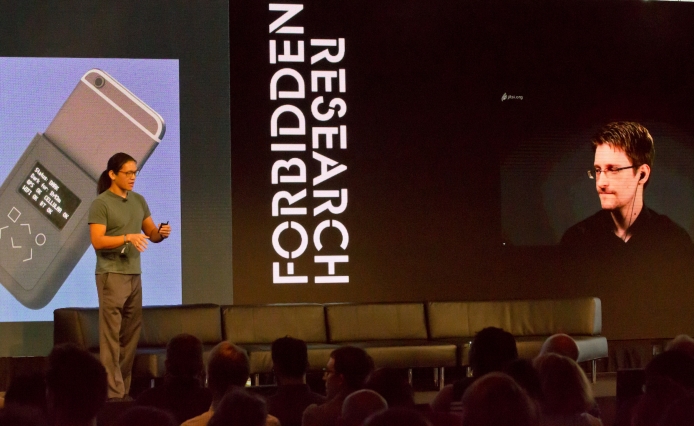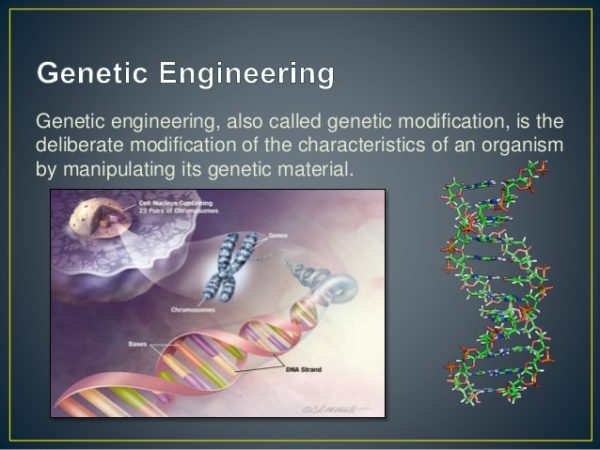
We are in an era of significant scientific progress. However, there are some areas where scientists are finding it difficult to conduct further studies due to restrictions.
The restrictions are as a result of ethical and moral questions surrounding such topics. Although scientists are willing to venture into such restricted areas, they acknowledge there are ethical concerns which need broader public debate to arrive at a helpful consensus.
The Massachusetts Institute of Technology (MIT) hosts an annual scientific conference titled “Forbidden Research.” The conference brings together eminent scientists and experts to discuss areas science is unable to access in depth due to constraints by ethical, cultural and institutional restrictions. The event also gives participants a platform to consider ideas and questions that would be helpful in some of the restricted areas.
During last year’s conference, participants revealed the difficulty in gaining support for full research into the following five areas:
Genetic Engineering: This field has sparked huge controversy, even among the scientific community. Whereas some scientists are of the opinion that fully exploring Genetic Engineering (GE) is likely to cause many problems for humanity, others think the opposite. Scientists who advocate for GE have contributed to the production of Genetically Modified Foods. Currently, GE advocates are thinking about gene editing. However, this area is proving to be a no-go zone for scientists. Many people have raised ethical issues with this technology. Just like GE foods, which are now causing health problems, observers believe if gene-editing is permitted, it could have devastating effects for humanity. For example, it could lead to what is known as ‘designer babies.’
Nonetheless, some scientists that attended the MIT conference believe these concerns do not necessarily mean gene-editing technology is bad. They argue the technology could be extremely beneficial to humanity.
“Some things are forbidden and arguably shouldn’t be, but other things perhaps we need some more barriers,” said Kevin Esvelt, a synthetic biologist at MIT Media Lab.
Climate Engineering: Previously, this subject was considered a conspiracy theory. Now the truth is out. Scientists are thinking of engineering the climate. They hope to do this via solar engineering. This involves releasing sulfur dioxide into the atmosphere to reflect some of the sunlight away from Earth. Scientists claim doing this could tamper down rising temperatures, possibly bringing them back to pre-industrial levels.
However, there are serious concerns with this project. Atmospheric testing is necessary to see whether doing this could damage the ozone layer while adding more pollutants to the atmosphere. But scientists are still confident that the solution to the current rapid Global Warming is climate engineering.
“We have collectively decided we prefer ignorance. We need a serious, open, no-nonsense international research program, and we don’t have one. That is political cowardice,” said Harvard professor David Keith.
Robotics: As the quest for artificial intelligence (AI) continues to increase, questions of where the lines should be drawn between robots and humans are also increasing. Professor Stephen Hawking believes AI could spell doom for humans if not handled with caution. But some scientists disagree with Professor Hawking. Advocates argue that there is potential to use AI to protect children from sexual deviance by creating sex robots for pedophiles.
“I want to know [if] we can use robots therapeutically to help. We have no idea if we can, and we can’t research it because of the huge social stigma,” said robot ethicist Kate Darling from MIT’s Media Lab.
Secure Communication Technology: At the MIT conference, Edward Snowden was invited via a video link. In fact, Snowden said it is difficult to create a communication technology that is not being spied on by somebody. We all know the story of Snowden. Scientists say secure communication technology appears to be a forbidden area. Governments are not interested in funding studies that would produce the technology. The United States government loves to spy, for example, and won’t listen to any debate on producing secure communication technology for the public. Snowden explained that there is no moral justification for spying.
“Our investigation regards countering what we’re calling lawful abuses of digital surveillance. Lawful abuse, right, what is that, doesn’t seem to make a lot of sense. Seems like it might be a contradiction in terms. But if you think about it for just a moment it might seem to be a little bit more clear. After all, the legality of a thing is quite distinct from the morality of it. Segregation, slavery, genocides, these have all been perpetuated under frameworks that said they were lawful, as long as you abided by the regulations that were sort of managing those activities,” Snowden told the conference from his undisclosed location in Russia.
Universal Access to Science: Indeed, even within the scientific community, there is secrecy. Empirical knowledge of a particular country or organization is highly protected. But some scientists are beginning to question this policy. These scientists believe all publicly-funded research should be made available to everyone on Earth. Work has already begun on this topic, but it is lacking support among governments. A Russian science website, SciHub is now featuring over 55 million scientific papers for free. Many of these papers were pirated and pulled from behind paywalls.
Alexandra Elbakyan who played a key role in establishing the website said via a video link at the conference that she can’t travel to the United States or Europe because she might be arrested for piracy. Elbakyan is now advocating for universal access to scientific works. She believes this would improve the scientific community, benefiting the society at large.
Although we are making progress in the field of science, it is clear that massive challenges are ahead of us. If we have the spirit of humanity, there is no doubt that we can manage these challenges.
This article (Scientists Cry Foul Over These 5 “Forbidden Topics”) is a free and open source. You have permission to republish this article under a Creative Commons license with attribution to the author and AnonHQ.com.
Supporting Anonymous’ Independent & Investigative News is important to us. Please, follow us on Twitter: Follow @AnonymousNewsHQ










terrible approach with pedophilia, mental health is the issue. Couseling and therapy is the proper way to approach the issue.
Counseling and therapy certainly hasn’t helped homosexuality, and we know now that you can’t “cure” sexual preferences. Pedophilia is obvioulsy far more problematic, since it is a preference that should never, ever be praticed. But I have to say I think it is just as “uncureable”as any other preference.
Some counseling, however, is probably a good idea, not to “cure” it, but rather to help the person to accept that he/she lives with a sexual preference that can never be satisfied, and how they can handle that properly through life.
I think the idea of robots has to be seen in that context. Right or wrong ? I am not the one to judge.
“The United States government loves to spy, for example, and won’t listen to any debate on producing secure communication technology for the public”
Eureka! There we have it. If the government won’t listen to it, then a debate on secure communication would actually be the best place for… ..secure communication, wouldnt’t it ? 🙂 🙂 Problem solved! 🙂
Joking aside, very good summary this. Thank you. Open-mindedness is essential for problem sloving and we sure need more of that.
I’m missing the forbidden research topic number 1: Homosexuality and related sexual preference disorders. Try and loose your job, being called ‘homophibic’ for the rest of your life. The political correct person is just to repeat homo lobby dogmas. -.-
Scientists don’t “express worry” at any kind of research. They express worry when the research produces poor or harmful results. You’re trying to create an imaginary scare story, suggesting either “Oh no, they are tampering with things that shouldn’t be known by Man!” or “Oh no, they are going to reveal Our Evil Secrets!” Bull and bull.
This article does not accurately reflect the conference (at least the first two hours, as I have only watched Part 1). The writer appears to be scare mongering, adds outright lies (GMO food sources have NEVER caused harm to humans), and employs semantics to worm the author’s own views/agenda into an otherwise solid conference.